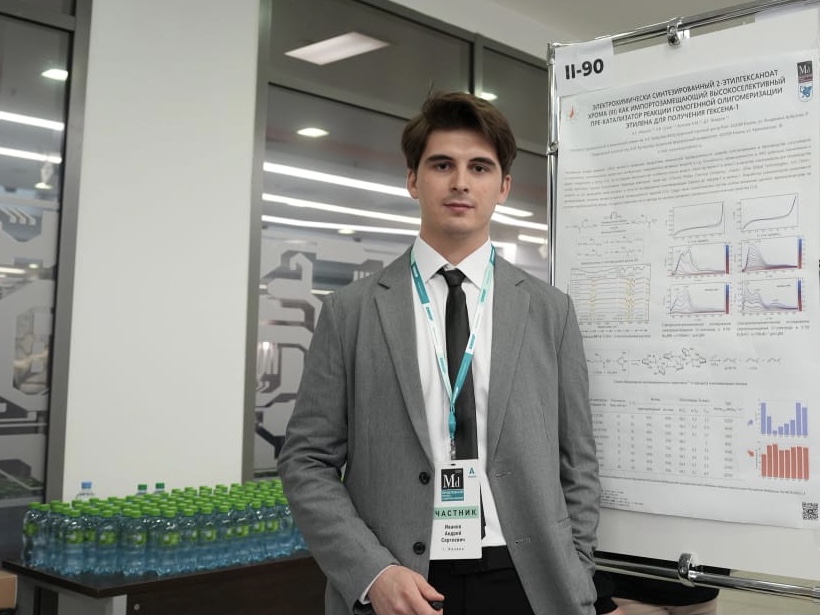Synthesis of chromium (III) 2-ethylhexanoate to be funded by Student Startup

Andrei Ivanov, an Institute of Chemistry graduate, has developed a new import-substituting technology for the synthesis of chromium (III) 2-ethylhexanoate as a component of a highly selective catalytic system for the industrial process of ethylene trimerization. His project is among the winners of the 5th season of the Student Startup competition.
The chemist’s startup was presented in the New Materials and Chemical Technologies nomination. The aim of the project is to develop a technology for the production of chromium (III) 2-ethylhexanoate as a component of a highly selective catalytic system for ethylene trimerization to produce hexene-1.
“Linear alpha olefins (LAOs) are important products of the chemical industry, widely used for the production of polyethylene copolymers, synthetic lubricants, surfactants, etc. The industrial demand for LAOs is quite significant and tends to grow. The demand for hexene-1, mainly for the polymer industry, has grown especially strongly recently,” said Andrei Ivanov. “At present, the main method of production of LAO (hexene-1) is homogeneous oligomerization of ethylene using catalytic systems based on transition metals, which we are developing.”
The final product of the project is supposed to be a technology that allows the production of chromium (III) 2-ethylhexanoate with: a minimum amount of moisture at the time of synthesis, since water affects the composition of the resulting products, and is a catalytic poison for any catalysts for the oligomerization of ethylene; high current and preparative yields; small energy consumption; high selectivity and activity, close to the quantitative separation of the reaction product. The proposed product represents the first electrochemical catalyst production technology on the market, making the process environmentally friendly and controllable – minimum by-products and waste, high conversion of starting reagents, which brings the product to a high level and makes it competitive with other technologies.
“Our technology for synthesizing ethylene oligomerization catalysts is based on fundamentally new electrochemical approaches. By applying them, we have learned to produce catalysts not from chromium salts, but directly from metallic chromium. This allows us to significantly increase the efficiency of catalysts due to the absence of halide anions and water, which are catalytic poisons,” explained the author.
According to him, the technology will also make it possible to avoid formation of by-products, reduce to zero the number of intermediate synthesis stages and control the process of obtaining catalysts depending on the needs of a particular plant.
It should be reminded that earlier, being a student, Andrei Ivanov won the first place at the XXXIV Mendeleev Student Competition, where he presented a work related to the issue of creating import-substituting highly selective catalytic systems for the industrial process of ethylene trimerization to produce hexene-1.
He now plans to continue his research in a PhD program. The grant of 1 million rubles wil be used to purchase consumables.
111 KFU students are among the winners of the fifth season of Student Startup, which makes our university first in the nation.

